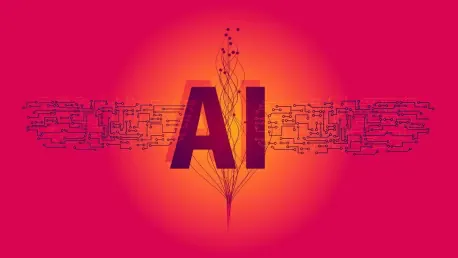The scholarly publishing industry is currently experiencing a transformative phase with the advent of generative AI technologies. Despite the rapid advancements and the potential benefits associated with AI, the adoption and integration of generative AI into scholarly publishing have been inconsistent and lack a unified framework. This inconsistency has led to significant discussions and debates within the academic community about the potential benefits, challenges, and ethical implications of AI in this sector. The promise of AI brings about questions of integrity, the future of peer review, and institutional challenges that need addressing.
The Rise of AI-Enhanced Tools in Scholarly Publishing
At the core of the discussion is the rapid development and deployment of AI-enhanced tools designed to revolutionize search and discovery within the academic realm. Since the release of ChatGPT by OpenAI, publishers and content aggregators have actively explored the applications of generative AI across various academic processes, including backend tasks such as editing, peer reviewing, and documenting experimental processes. The education research firm Ithaka S+R highlights that the scholarly publishing industry is poised for substantial growth in the utilization of AI throughout the research and publication lifecycle.
However, this potential growth is coupled with a notable variability in adoption rates among researchers. According to Ithaka S+R, despite the advancements in AI technology positively influencing academic research production and publication, researchers have been slow to adopt generative AI widely. This discrepancy has prompted further studies, including interviews with key stakeholders within the scholarly publishing world, to better understand the implications and challenges posed by the integration of generative AI. The enthusiasm for AI in some quarters contrasts with the hesitation seen in others, highlighting the need for a more systemic approach to adoption.
Concerns Over Information Integrity and Ethical Implications
One of the primary concerns raised by researchers is regarding the integrity of freely accessible information used to train large language models (LLMs). There is a fear that without rigorous peer review, these models could undermine the quality and credibility of scholarly research. Interviews conducted by Ithaka S+R with librarians, members of scholarly societies, funders, and publishers reveal a mix of optimism and caution regarding AI’s impact on academic research practices. The hope is that generative AI could offer efficiency gains which could streamline publication processes and potentially accelerate scientific discoveries.
A significant point of consensus among stakeholders is the efficiency gains generative AI could bring to the publication process. Tasks such as writing, reviewing, editing, and discovery could become exponentially faster and more efficient, potentially accelerating scientific discovery. However, opinions differ on how these efficiency gains will shape the future of scholarly publishing. Some believe that AI will streamline processes without fundamentally altering the core dynamics or purpose of academic research. In contrast, others foresee a transformative impact from generative AI that could surpass the changes brought by digital tools over the past three decades. The reliance on AI for efficiency needs to be weighed against the potential ethical implications and risks.
The Debate on AI in Peer Review
The specific application of AI in peer review has been a hot topic of discussion within the academic community. Scholars have long lamented the lack of compensation for peer reviewing, and AI presents both opportunities and challenges in this domain. Some see the automation of peer review as an ethical dilemma, while others recognize the potential of AI to alleviate bottlenecks in the publication process. AI could match reviewers with authors, handle basic editing and citation formatting, and allow human reviewers to focus more closely on content quality.
Nevertheless, the academic community has been slower to develop clear communication and policies around generative AI compared to other industries. A study by Ithaka S+R found that a significant percentage of biomedical researchers do not use generative AI for specific research purposes. Additionally, a survey conducted by Inside Higher Ed indicated that only a minority of higher education institutions feel prepared to handle the rise of AI technology. Many institutions have taken an individualized approach, managing AI integration on a case-by-case basis rather than addressing the issue at an enterprise scale.
Institutional Challenges and the Need for Collaboration
The scholarly publishing industry is currently undergoing a major transformation due to the rise of generative AI technologies. These advancements promise significant benefits, but the adoption and integration of AI into scholarly publishing have been uneven and lack a cohesive framework. This inconsistency has sparked extensive discussions and debates within the academic community on the benefits, challenges, and ethical repercussions of AI in this field. The introduction of AI raises questions about the integrity of research, the future of the peer review process, and various institutional challenges that must be addressed. The industry is at a crossroads where the potential of AI to revolutionize scholarly publishing is clear, but the pathway to its effective and ethical implementation remains uncertain and complex. Institutions and stakeholders need to work together to create a unified approach to harness AI’s full potential without compromising academic standards and ethical values. As this technology continues to evolve, it is crucial to ensure that its integration supports the core principles of scholarly publishing.









